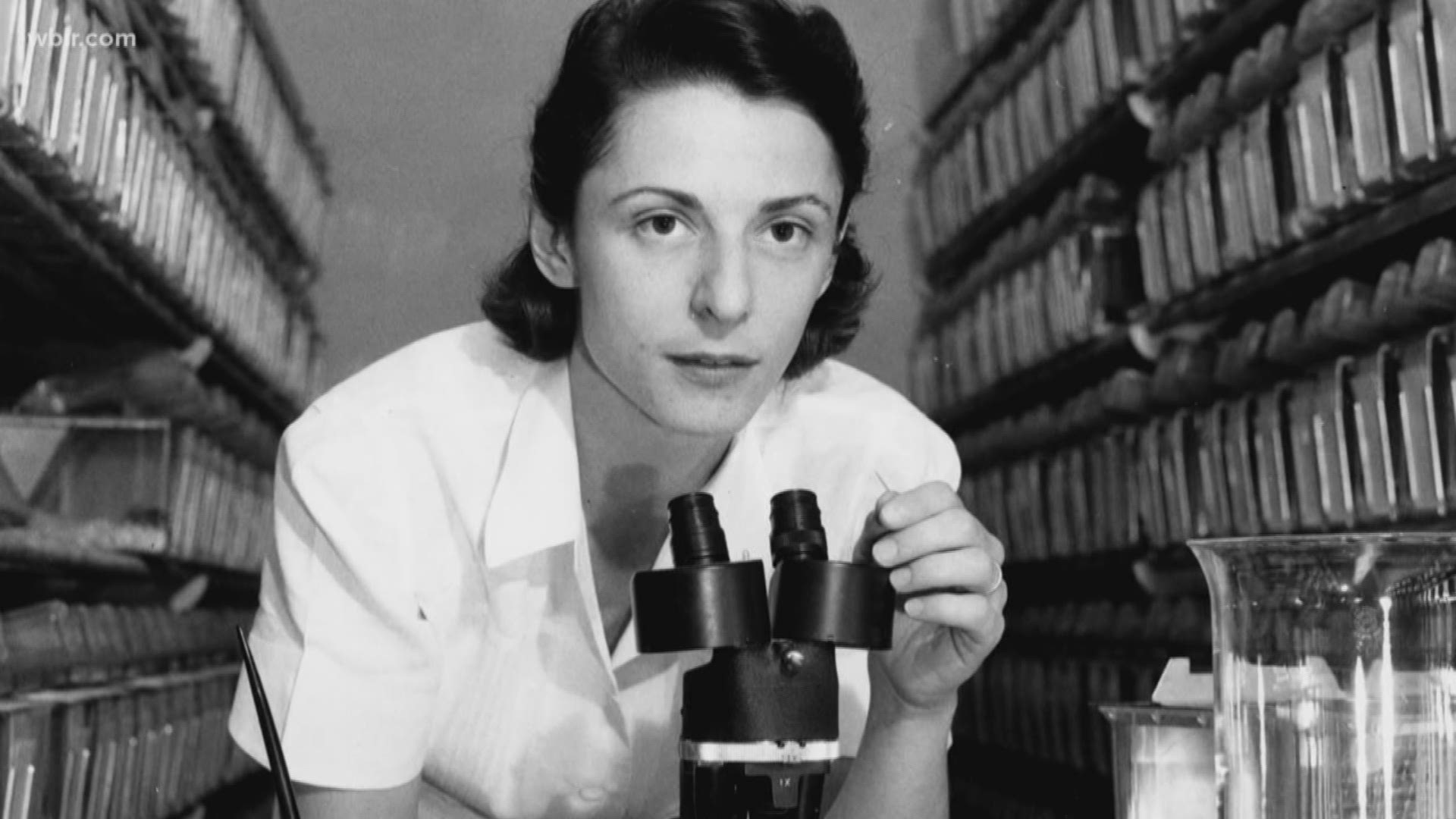OAK RIDGE, Tenn. — Liane Russell died on Saturday morning, a Facebook post from Tennessee Citizens for Wilderness Planning said Monday.
She was a world-renowned geneticist whose conservation efforts also helped save one of the last free-flowing river systems in the Eastern United States.
Liane and her husband Bill Russell had moved to Oak Ridge in 1947 to study the genetic impacts of radiation.
"The big pressure then from the Atomic Energy Commission was to investigate the hereditary effects of radiation because the country had suffered from some degree of the fallout from atomic weapons testing, and people were quite worried about what the affects might be not only on themselves, but on their children," Russel told 10News in an interview last year when she was 95 years old.
The Russells conducted their research on mice. Until that point, most genetic research had been conducted on organisms less similar to humans. Their program garnered the nickname "The Mouse House."
Their most notable discovery identified the Y chromosome as the determining factor in male organisms and that only one X chromosome is active in females.
The breakthrough wasn't even the goal of the research.
"The purpose of our program was to get some kind of quantitative information on the hazards or possible hazards of radiation, so this was not in that line of work," Russell said.
The Russells grew their "Mouse House" into the one of the largest mouse research facilities in the world. Liane retired in 2002. Bill died the following year.
Despite garnering major scientific awards, some of the Russells' most proud contributions came outside of the lab.
In June of 1965, a fellow scientist took the Russells to his favorite spot on the Obed River. The multi-day canoe trip changed their lives.



